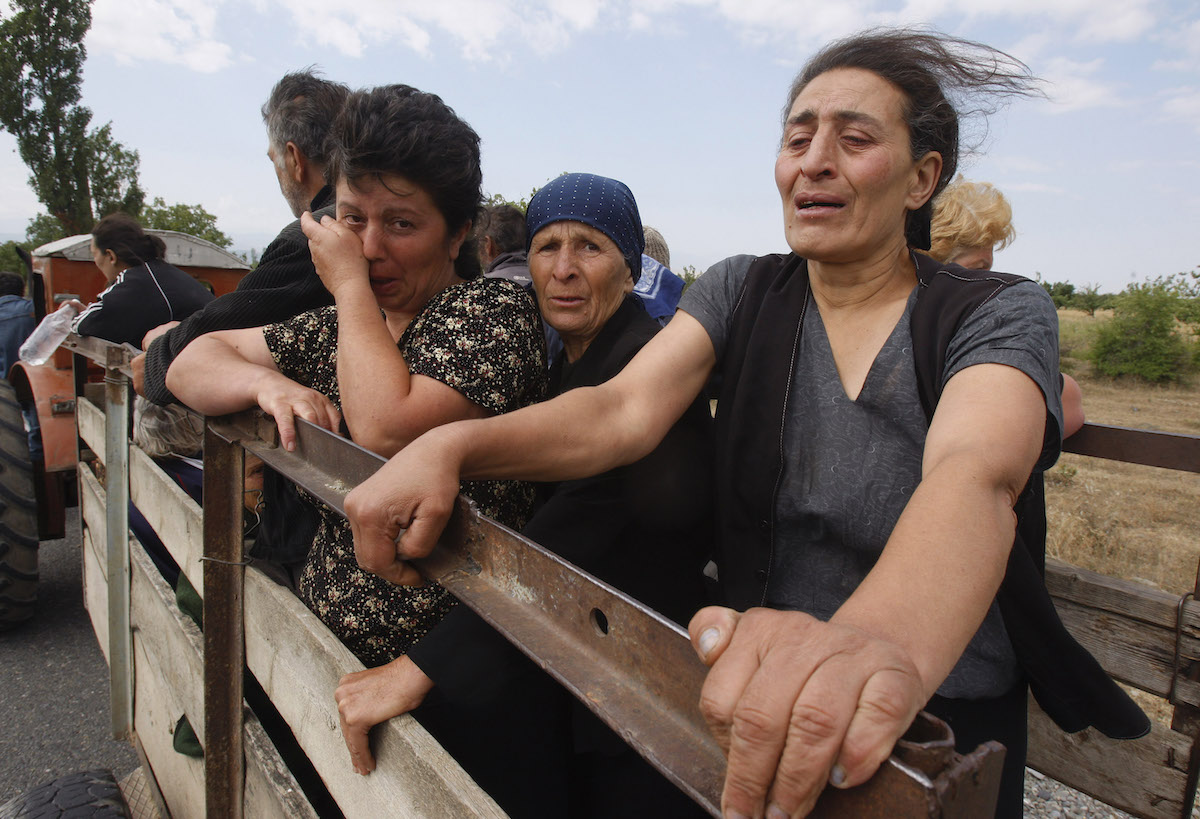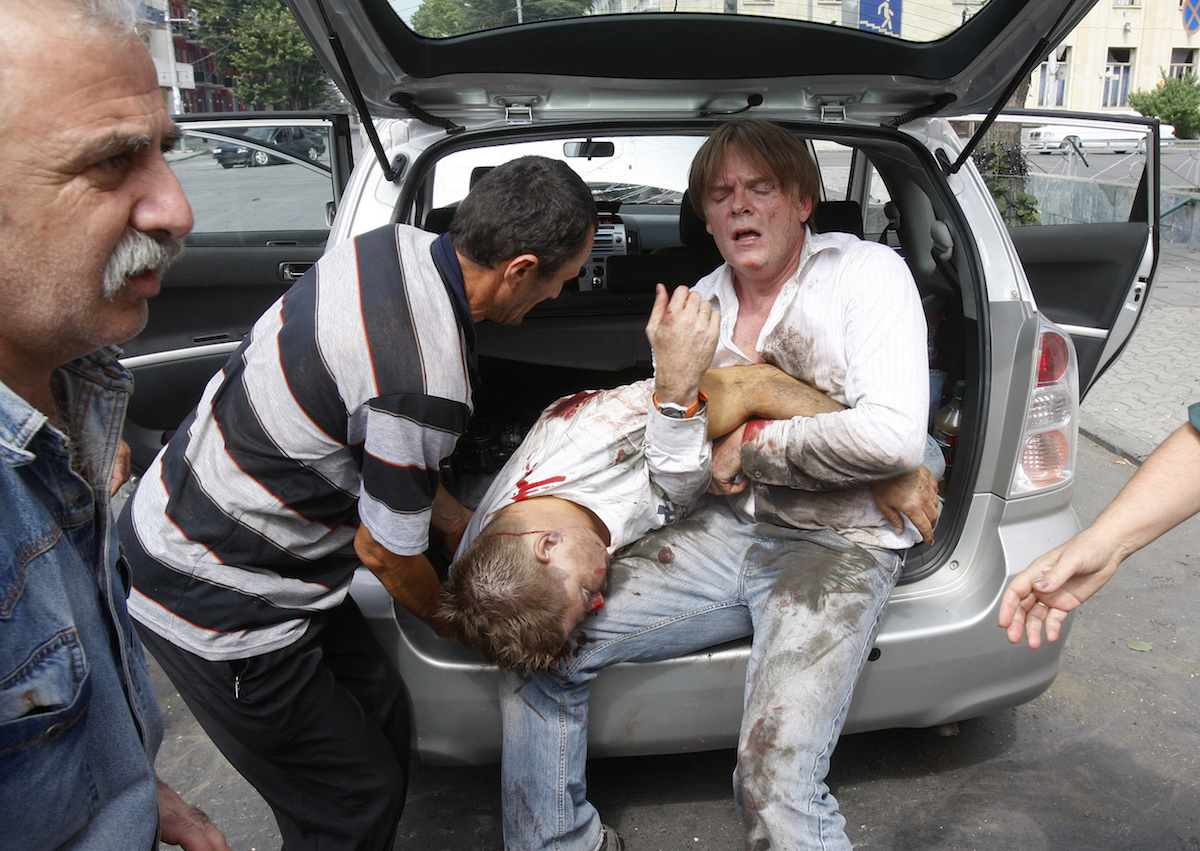Georgia v. Russia: European Court in Strasbourg holds final hearing on August 2008 war

Georgia v. Russia (II) is the name of the case heard on 23 May in the European Court of Human Rights in Strasbourg (ECHR). It concerns violations against Georgia and its citizens during the August 2008 war and beyond. This is the last sitting of the ECHR dedicated to this case, almost 10 years since it was launched. A verdict is expected to be reached within a few months’ time.
Radio Liberty reports that according to the statement of the Georgian Justice Ministry, the Georgian side provided convincing evidence, laying grounds for a successful outcome of the case.
Georgia’s position in the European Court, Strasbourg
The suit against Russia was submitted to the ECHR on 11 August 2008. Six months later, on 6 February 2009, the claim was supplemented with clarifications and a number of details and the ECHR formally accepted the lawsuit subsequent to a decision made on 13 December 2011.
Georgia accuses Russia of violating Article 8 of the European Convention. In particular, Georgia believes that during the August 2008 war and in the subsequent period Russia violated the right to life, committed torture and inhumane treatment of Georgian citizens, violated the rights to freedom and security, the right to defend personal and family life, the right to defend equity, the right to property, the right to education and the right to freedom of movement.
Georgia’s position: during the war and beyond, the responsibility for mass violations against Georgian citizens lies entirely with Russia, as Russia’s jurisdiction extends to the conflict regions. Georgia cites diverse evidence in support of its position:
- Russia participates in the training of de facto military personnel of Georgia’s break-away regions;
- Russia makes appointments of high-ranking officials in de facto republics;
- Russia provides financial and economic assistance to these regions;
- Russia was distributing Russian passports to residents of these regions and introduced a visa-free regime for them;
- Russian legal jurisdiction is effective in the break-away regions;
- Russian troops are deployed in these regions;
- So-called South Ossetia hosts exercises of the Russian armed forces, which were conducted long before the August 2008 war, in accordance to Russia’s military plans;
- Russia recognized the independence of South Ossetia and Abkhazia.
The ECHR heard the testimony of a total of 33 witnesses, reviewed 700 pieces of evidence submitted by the Georgian side, including video and photo materials, radar data, expert conclusions, surveillance camera records, seismic station records, information on explosions, witness statements, images of satellites, reports by international organizations, telephone conversations and reports from mine clearance operations.
The main evidence of the case is the fragments of the Iskander missile fired at the city of Gori on 12 August and the conclusions of the experts who investigated these fragments. The missile claimed the life of the Dutch cameraman Stan Storimans who covered the course of the 2008 war.

Dutch journalist Hieroen Akermans, a colleague of Storimans who was present at the time of the explosion, arrived at the session of the ECHR in Strasbourg. Akermans has produced a documentary which investigates the circumstances of the death of his colleague. The film appears among the evidence submitted by Georgia.
https://www.youtube.com/watch?v=Z9kca9JfwHg
Images of the Gori bombing on 12 August in which the Dutch television cameraman was killed.
A ‘historic process’
The Georgia v. Russia case is being referred to as a ‘historic process’ in Georgia. According to the Ministry of Justice, the case is a precedent for the ECHR as ‘this is the first time the court is considering such a large-scale case concerning active hostilities during an armed conflict at an international level and in such a context – the issue of international humanitarian law and human rights’.
“We are focusing on all the main evidence. Our demands are just. It could not be otherwise, since Georgia is a law-governed state with democratic values. This is a struggle for justice and there will not be a compromise in this fight,” Georgian Deputy Minister of Justice Gocha Lortkipanidze said in an interview with Rustavi-2 television. The Ministry of Justice, along with two British lawyers, is representing Georgia’s interests in the ECHR.
In Georgia, the regional importance of this case is emphasized – according to the statement of the Ministry of Justice, the decision of the ECHR will play an important role in terms of conflicts in Georgia, Ukraine and Moldova ‘as it will strengthen the legal norms within which these conflicts must be resolved through political efforts’.
The case is being examined in the Grand Chamber of the ECHR in Strasbourg. It consists of judges from 17 states – among them Georgian and Russian judges. The President of the ECHR, Guido Raimondi, is the chairman of the Grand Chamber.
This is the second suit against Russia which Georgia submitted to the ECHR in Strasbourg. The first was introduced by the Georgian side in 2007 after Russia expelled more than 2 000 Georgian citizens from its territory in 2006.



















